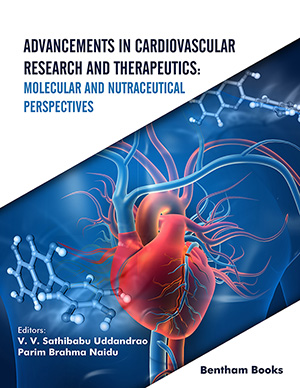Abstract
Congestive Heart Failure (CHF) is the inability of the heart to supply blood to other organs and tissues to meet its need for metabolism. Over 64.3 million people around the world live with heart failure. Some of the common causes of CHF include myocardial infarction, increase in blood pressure, atrial fibrillation and cardiomyopathy. The complete etiology of CHF is complex. Patients with HF often experience fatigue, dyspnea, and pain, lack of energy, cognitive impairment and depression. Left ventricular ejection fraction (LVEF) is a measure of the amount of blood pumped from the heart's left ventricle during each contraction. It is used as a phenotypic marker in the indication of the pathophysiological mechanism and sensitivity to therapy. The pathogenesis of HF with low ejection fraction is that of a progressive state. The various classes of drugs used clinically for the treatment of congestive heart failure are diuretics, beta blockers, ACE inhibitors and vasopressin receptor antagonists. The management of Heart failure includes acute decompensation, chronic management and palliative care. Cardiac glycosides are a varied group of naturally obtained compounds used in the treatment of CHF. They exhibit their action by binding to and inhibiting Na+/K+-ATPase. Then, they consequently increase the force of myocardial contraction. The primary structure of these drugs is a steroidal framework, which is the pharmacophoric component that is responsible for their activity. The most familiar cardiac glycosides are digitoxin, digoxin, oleandrin, bufalin, ouabain, marinobufagenin, telocinobufagin and aerobufagenin. Among other cardiac glycosides, digoxin has been proven to improve symptom alleviation, functional capacity, quality of life and exercise tolerance in patients with mild to moderate HF in clinical trials. Early detection and prevention interventions, as well as lifestyle changes, are essential.
Keywords: Cardiac glycosides, Causes, Congestive heart failure, Digoxin, LVEF, Pathogenesis, Treatment.






















